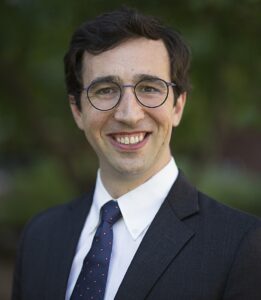Spring 2026 Seminar Series
All seminars this semester will be held in person, from 11:30am – 12:45pm, in the Public Policy Building, Room 367.
Tuesday, February 17

Scott Stern, Ph.D.
David Sarnoff Professor of Management of Technology
Professor, Technological Innovation, Entrepreneurship, and Strategic Management
MIT Sloan School of Management
Tuesday, March 24
Nuno Limao, Ph.D.
Wallenberg Chair in International Business and Finance
Georgetown University
Tuesday April 21
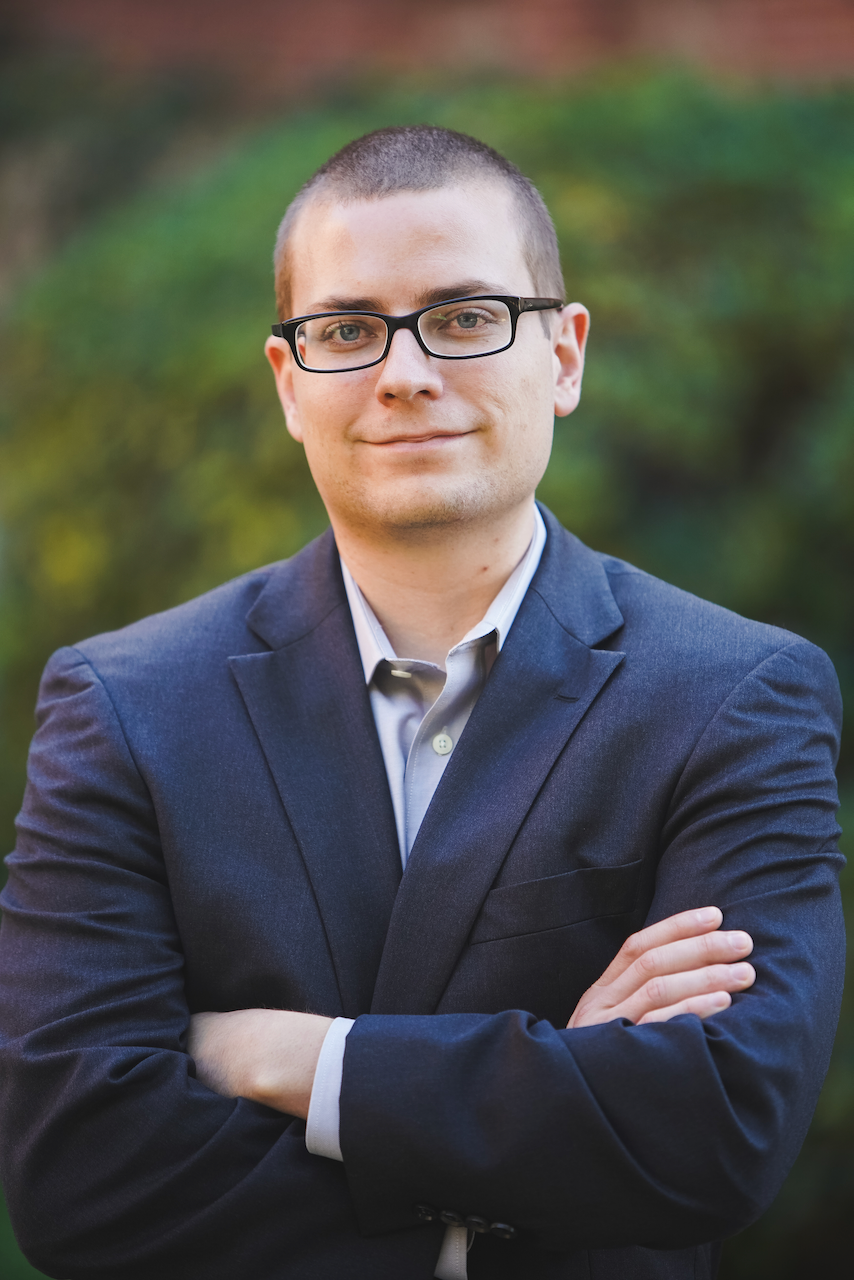
Nicholas Carollo, Ph.D.
Senior Economist, Labor Markets
Division of Research and Statistics
Federal Reserve Board of Governors
Thursday, May 7
Andres Sarto, Ph.D.
Assistant Professor of Finance
Gies College of Business
University of Illinois Urbana-Champaign
Fall 2025 Seminar Series
All seminars this semester will be held in person, from 11:30am – 12:45pm, in the Public Policy Building, Room 367.
Thursday, September 4
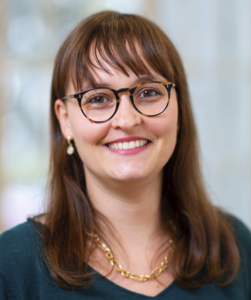
Ph.D. student, Vancouver School of Economics, University of British Columbia
Title: The Social Consequences of Technological Change: Evidence from U.S. Electrification and Immigrant Labor
Abstract: This paper studies how radical technological change shapes the integration of immigrant workers by examining the early expansion of the high-voltage electric grid in the United States between 1900 and 1940. Electrification transformed U.S. manufacturing by enabling assembly-line production, lowering the need for coordination on the factory floor. These changes particularly benefited low-skilled immigrant workers, increasing their participation in manufacturing and enabling greater ethnic mixing within industries.
The analysis combines full-count census data with newly digitized maps of the electric grid over time. It takes advantage of variations in the timing of county-level electrification to estimate its causal impact on the ethnic composition of the manufacturing workforce. The results show that electrification increased the share of foreign-born workers, raised workforce diversity, and reduced occupational segregation across ethnic groups. These findings suggest that electrification attenuated the prevailing trends of declining immigrant representation and increasing segregation in manufacturing at the end of the Age of Mass Migration.
The paper also investigates whether workplace integration translates into broader social outcomes. It examines changes in residential segregation and cultural assimilation—measured by the Americanization of children’s names and intermarriage rates—of immigrant workers, comparing electrified and non-electrified areas. Overall, the findings indicate that electrification facilitated labor market inclusion and promoted longer-term cultural integration of workers employed in manufacturing. The paper contributes to understanding how radical technological change can shape not only productivity and labor demand but also the social fabric of diverse societies.
Tuesday, September 16
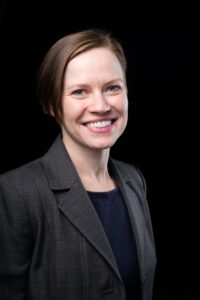
Department of Social Work, Appalachian State University
Tuesday, October 14

Meiping Aggie Su
Economics, Fordham University
Title: Long-term and Multi-generational Impacts of Skilled Birth Attendance
Wednesday, October 29

Paul Mohnen
Federal Reserve Bank of Atlanta
Tuesday, November 11

Aakash Kalyani
Federal Reserve Bank of St. Louis
Friday, November 21

Nicholas Papageorge
Economics, Poverty and Inequality Research Lab, Johns Hopkins University
Abstract: Alzheimer’s disease and related dementias (ADRD) are widespread and costly. The severe under-diagnosis of ADRD impedes many people from preparing for related health and economic consequences. Existing work has identified several genetic predictors of ADRD, including APOE-ε4 and a polygenic score for ADRD, but genes do not yet figure prominently in ADRD screening. Using data from the Health and Retirement Study, we first show that observed genetic factors can significantly improve the prediction of future ADRD beyond what is possible using standard predictors like past cognitive test scores and family history. We then test whether individuals with elevated genetic risk engage in behaviors that could help them plan for or respond to future ADRD. APOE-ε4 carriers face dramatically higher rates of future ADRD, and we find weak evidence that they are aware of their elevated risk and engage in some financial and legal preparations. Individuals with higher polygenic scores are also more likely to develop ADRD, but are significantly less likely to engage in planning activities, such as having long-term care insurance or a durable power of attorney. These results raise the possibility that genetic screening can help individuals at risk of ADRD, but who are unaware and unprepared and thus especially vulnerable.
Spring 2025 Seminar Series
Tuesday, April 1st – virtual
11:30am – 12:45pm
School of Law and Politics, Cardiff University

Stefan Szymanski
School of Kinesiology, University of Michigan

Title: Sporting Regulatory Capture
Monday, April 28 | 11:30am – 12:45pm | Public Policy, Room 367
Naomi Utgoff
Economics Department, United States Naval Academy
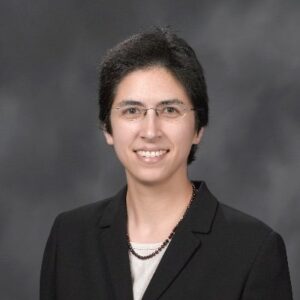
Tuesday, May 6 | 11:30am – 12:45pm | Public Policy, Room 367
Pablo Slutzky
Robert H. Smith School of Business, University of Maryland, College Park

Fall 2024 Seminar Series
11:45 am – 1:00 pm ET
Tuesday, September 17 – virtual
Marco Errico
Research Fellow, Banca d’Italia

Title: “Oligopolies in Trade and Transportation: Implications for the Gains from Trade”
Abstract: Transportation services are crucial for goods to move globally; however, given the concentration in the industry, and its interaction with granular importers, the realized gains from trade differ from standard theories. We study the interplay between oligopoly in the transportation industry and oligopsony power retained by non-atomistic importers. We leverage transaction-level data from Chilean customs to document several empirical facts: (i) market concentration in the transportation sector and among importers, and (ii) that transportation prices are highly dispersed and are the outcome of bilateral negotiations. We then develop a trade model that departs from the usual iceberg cost assumption and allows for bargaining with two-sided market power in the transportation industry. We find that transport carriers charge large markups (on average 2), but importers benefit from substantial bargaining power (markdown of 0.85 and Nash bargaining 2.5 times larger). Finally, we embed the bilateral bargaining framework into a quantitative trade model of importing. We show that market concentration reduces the pass-through of tariff shocks to gains from trade, and that the welfare implications of trade liberalization are different when accounting for the strategic interaction between the transportation sector and importers.
Department of Economics, University of Mannheim

Abstract: We study how asymmetric enforceability of regulatory rules affects firms’ compliance using a simple inspection model and a large sample of German privacy policies. We exploit the introduction of the General Data Protection Regulation, compelling firms to disclose, in accessible language, details of their data use. The specifics of disclosure are objective, whereas readability is subjective and difficult to enforce. We show that firms increased disclosure, but the policy readability did not improve. In line with theory, firms anticipating regulatory scrutiny and those facing higher-budget data protection authorities demonstrated a stronger response in readability compliance without sizeable effects on disclosure.
Department of Economic Sciences, University of Montreal
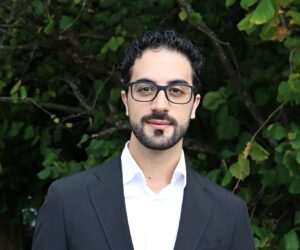
Title: “Marrying Your Job: Matching and Mobility with Geographic Heterogeneity”
Abstract: This paper examines the effects of geographic heterogeneity in occupational returns on marriage market outcomes and the impact of family formation on the geographic distribution of labor. I document that workers living in cities that pay relatively lower wages to their occupation (i.e., workers who have higher potential pecuniary returns from migration) are less likely to marry and more likely to divorce. Using a structural model of migration and family formation, I assess individual and aggregate effects of marriage and location choices through counterfactual experiments. I find that, overall, the marriage-market amenity enhances productivity by drawing workers to high-return locations.
Monday, November 4 – PUP 367
Catherine van der List
Department of Economics, University of Essex
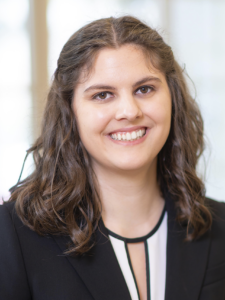
Title: “How do Establishments Choose Their Location? Taxes, Monopsony, and Productivity”
Abstract: Abstract: To study the distribution of economic activity across space and the effects of place-based policies, I develop a model of the location choice of new establishments incorporating taxes, monopsonistic labor markets, and spillovers. Estimates using administrative data from Germany indicate that establishments generally have a preference for lower taxes, as well a preference for lower worker outside options which enable establishments to pay lower wages. The degree to which various types of productivity spillovers matter in the location decision of establishments varies greatly between industrial sectors. I also quantify the effects of a counterfactual place-based tax policy and find that commuting zones display heterogeneous wage and economic activity responses to the same policy due to differing degrees of labor market power across space.
Graduate students are encouraged to attend and meet with the speaker. Sign up here to meet with Dr. Catherine van der List.
Postdoctoral Research Fellow, Stone Centre, University College London

Title: “Race and Science”
Abstract: What are the consequences of the racial gap in science and innovation? I study this question by combining data on US patents, medical research articles, clinical trials, and research grants with the racial distribution of last names in the US population. Using last names as a proxy for race, I find that the racial composition of scientists affects the direction, as well as the rate, of medical research and innovation. First, scientists with a Black-sounding name are three times as likely to design clinical trials with Black or African American participants and twice as likely to publish articles focused on Black or African Americans. Second, scientists with a Black-sounding name are more likely to research diseases frequent among Black or African Americans, and scientists with a white-sounding name among white Americans. Third, I draw a link between race and the direction of research by focusing on diseases more common in Black (e.g., sickle cell anemia) or white (e.g., melanoma) individuals due to evolutionary advantages in their ancestors’ countries of origin. Fourth, I document the impact of relative disease incidence on the direction of research by studying an exogenous change in HIV-related mortality among Black or African Americans compared to whites. I estimate a general equilibrium Roy model with racial frictions and endogenous choice of occupation. Using the data, I quantify the parameters and estimate that removing barriers would increase the overall number of inventors by 1 p.p., a 10% increase from the baseline.
Monday, December 2 – PUP 367
Alexa Prettyman
Assistant Professor of Economics
Towson University
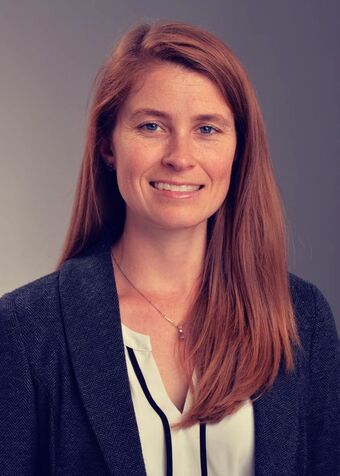
Spring 2024 Seminar Series
Via Webex, all times ET
Thursday, February 29, noon – 1 pm
Department of Economics, US Naval Academy

Title: “Officer Misconduct, Arrest Types, and Court Outcomes”
Tuesday, April 9, noon – 1 pm
Haas School of Business, University of California, Berkeley
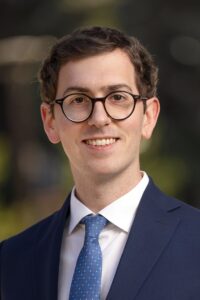
Title: “How Does Data Access Shape Science? Evidence from the Impact of U.S. Census’s Research Data Centers on Economics Research”
Tuesday, April 23, noon – 1 pm
Department of Economics and Finance, Manhattan College
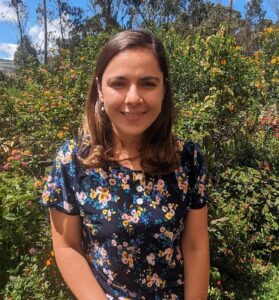
Title: “Estimating the Value of a Disc Golf Course with Revealed and Stated Preferences”
Department of Economics, Barnard College, Columbia University

Title: “Gun Violence in Black and White: Evidence from Policy Reform in Missouri”
Fall 2023 Seminar Series
Thursday, September 21, 12-1pm
Postdoctoral fellow, The Watson Institute for International & Public Affairs, Brown University

Title: “Sex, Drugs, and R&D: Missing Innovation from Regulating Female Enrollment in Clinical Trials”
Tuesday, October 10, 12-1 pm
Assistant Professor, Department of Health Management and Policy, University of Kentucky

Title: “COVID-19 Pandemic-Linked Job Losses and Health Care Access and Household Financial Health in Medicaid Expansion and Non-expansion States during the COVID-19 Pandemic”
Thursday, October 26, 12-1pm
Associate Professor of Economics, Department of Sociology and Anthropology, Rochester Institute of Technology

Title: “Disaggregating the ACS-ED: Exploring the Uncertainty and Accuracy of School District Level Estimates of American Indian and Alaska Native and White K-12 Population”
Thursday, November 30, 12-1 pm
Assistant Research Director, University of Maryland School of Social Work
Title: “Do Equity Measures Counteract Unintended Consequences of Performance Funding? Estimating Impacts on Enrollment of Black, Hispanic/Latina, and Low-Income Students”
Spring 2023 Seminar Series
Via Webex, all times ET
Wednesday, March 8, 2:30-3:30 pm
Assistant Professor, Department of Economics, Johns Hopkins University
Title: TBA
Wednesday, March 29, 2:30-3:30 pm
Assistant Professor, Department of Economics, Whittier College
Title: “In Tradition We Trust: The Political Economy of Property Rights”
Wednesday, April 5, 2:30-3:30 pm
Professor, Department of Applied Economics, HEC Montréal
Title: “The Sectoral Origins of the Spending Multiplier”
Wednesday, April 26, 2:30-3:30 pm
Research Assistant Professor, Social Science & Policy Studies, Worcester Polytechnic Institute
Title: “Do Non-Recorded Courses Help Achieve Academic Success for URM?”
Fall 2022 Seminar Series
Via Webex, all times ET
Thursday, September 22, 10:30 am
Harry Anthony Patrinos
Adviser, Office of the Chief Economist, Europe and Central Asia, World Bank
Title: “An Analysis of COVID-19 Student Learning Loss”
Abstract: COVID-19 caused significant disruption to the global education system. Early reviews
of the first wave of lockdowns and school closures suggested significant learning loss in a few
countries. A more recent and thorough analysis of recorded learning loss evidence documented
since the beginning of the school closures between March 2020 and March 2022 finds even
more evidence of learning loss. Most studies observed increases in inequality where certain
demographics of students experienced learning losses more significant than others. But there
are also outliers, countries that managed to limit the amount of loss. In 36 identified robust
studies, the majority find learning losses that amount to, on average, 0.17 of a standard
deviation, equivalent to roughly a 1/2 years’ worth of learning. This confirms that learning loss is
real and significant and has continued to grow after the first year of the covid-19 pandemic.
Thursday, October 13, 10:30 am
Sabrin Beg
Assistant Professor of Economics, University of Delaware

Title: “Teacher Flexibility and School Productivity: Evidence from a Remedial Education
Program in India”
Abstract: Public education in developing countries is often deficient, leading to substantial gaps
that grow as students progress. However, there is a trade-off between ensuring uniformly high
standards and introducing reforms that allow teachers flexibility to introduce remedial content.
We randomly assign Class 9 students in 300-schools in Odisha, India to either T1) rigidly
defined remedial lessons that take time away from the curriculum, T2) teacher determined
remedial lessons, or T3) control. We test the demand for and response to these lessons and
program flexibility. We show that both interventions increased students test scores
equally—0.11SD, about 60 percent of a year of learning, and that the quality of implementation
was high in both arms. Remedial lesson benefitted students throughout the ability distribution.
We find no evidence that increased flexibility increased teacher shirking. Despite a perception
that flexibility would reduce service delivery, giving teachers additional flexibility did not hurt
learning gains likely because teachers have a low demand for flexibility and selected the more
regimented version as a default.
Wednesday, October 19, 12:00pm
Catherine L. Kling
Tisch University Professor, Charles H. Dyson School of Applied Economics and Management,
Cornell University
(joint with the Geography & Environmental Systems Department Seminar Series)
Title: “The Social Cost of Water Pollution”
Abstract: Nutrient pollution of water in the United States is a growing issue with excessive
nutrients in all 50 states. In this study, the authors develop an integrated assessment model for
nutrient pollution that spans the entire continental US and incorporates social damages related
to drinking water costs, recreational losses, aesthetic damages that reduce property values, and
nonuse values of rivers and streams. By quantifying these social costs, policy makers can
prioritize needed changes and budgets to improve social well-being.
Tuesday, November 15, 2:00 pm
Daniel Brent
Assistant Professor, Pennsylvania State University
Title: “Financial Literacy and Academic Outcomes”
Abstract: Outstanding student debt has almost doubled in the past decade to over $1.7 trillion.
Delayed graduation contributes to the student debt burden by increasing tuition payments
without any additional wage premium. Behavioral theory suggests that young adults are prone
to biases limiting their ability to connect short-run actions with long-run outcomes. We attempt to
correct these biases using a low-touch financial literacy intervention within a randomized
encouragement design at a large public university. We randomly invite and incentivize first-year
students to participate in an online tutorial connecting short-run academic success to long-run
debt obligations and examine differences in academic outcomes. The intervention increases
credits earned and GPA: treated students earn 0.55 more credits per semester and GPAs
increase by 0.08. We also find substantially larger effects for underrepresented minorities and
less-prepared students. The intervention puts these at-risk students on track to graduate on
time, where they would otherwise fall behind. Applying a simple benefit-cost formula, our results
suggest that spending one dollar incentivizing financial literacy in this context leads to tuition
savings of $115.
Spring 2022 Seminar Series
Via Webex
Jamein P. Cunningham
Assistant Professor , Department of Policy Analysis and Management and the Department of Economics, Cornell University
“The Impact of Affirmative Action Litigation on Police Killings of Civilians”
Abstract: Although research has shown that court-ordered hiring quotas increase the number of minority police officers in litigated cities, there has been little insight into how workforce diversity, or lack thereof, may impact police violence. Using an event-study framework, we find that the threat of affirmative action litigation reduces police killings of non-white civilians in the long-run. In addition, we find evidence of lower arrest rates for non-white civilians and more diverse police departments 25 years after litigation. Our results highlight the vital role that federal interventions have in addressing police behavior and the use of lethal force.
Tuesday March 8, 12-1pm
Oyebola M. Okunogbe
Economist, World Bank Development Research Group, World Bank
Recording available upon request. Please email socialscience@umbc.edu.
“Becoming Legible to the State: The Role of Detection and Enforcement Capacity in Tax Compliance”
Abstract: Tax revenue in many low-income countries is inadequate for funding government investment in infrastructure and public services. This paper examines two dimensions of low state capacity that hinder tax collection: the inability to ascertain the tax base (detection capacity) and the inability to enforce unpaid liabilities (enforcement capacity). A randomized experiment with Liberian property owners finds that using identifying information from a newly developed property database to alert property owners that their noncompliance has been detected quadruples the tax payment rate, but only when the notice includes details on the penalties for noncompliance. A second experiment finds a further increase in compliance from signaling greater enforcement probability to delinquent property owners. These results highlight the importance of investments in both detection and enforcement capacity.
Thursday April 21, 2-3pm
Amanda Deerfield
Assistant Professor, Department of Economics, St. Mary’s College of Maryland
“Entrepreneurship and Regulatory Voids: The Case of Ridesharing”
Abstract: Formal institutions, e.g., regulations, are considered crucial determinants of entrepreneurship, but what enables regulatory change when there is a regulatory void, meaning entrepreneurship clashes with existing regulations? Drawing on public choice theory, we hypothesize that regulatory freedom facilitates the introduction of legislation to fill such voids. We test this hypothesis using unique data documenting the time for ridesharing to become legalized at the state level across the United States following its local (and often illegal) rollout. Results suggest states with greater regulatory freedom passed ridesharing legislation quicker, highlighting an underappreciated way that extant regulatory freedom facilitates the accommodation of entrepreneurship.
Fall 2021 Seminar Series
Via Webex
“School-Based Healthcare and Absenteeism: Evidence from Telemedicine”
Sarah Komisarow (Duke University)
Tuesday, September 21, 12:00pm EST
“Effect of Health Insurance Premium Changes on Labour Supply: Evidence from Rwanda”
Emmanuel Nshakira-Rukundo (University of Bonn)
Thursday, October 28, 10:00am EST
“Do Police Make Too Many Arrests?”
Felipe Goncalves (University of California, Los Angeles)
Wednesday, November 17, 2:00pm EST
“Environmental Justice and Oil & Gas Development in Colorado”
Katherine Dickinson (Colorado School of Public Health, CU Anschutz)
Tuesday, December 7, 2:00pm EST
Spring 2021 Seminar Series
Via Webex
“Understanding Climate Damages: Consumption Versus Investment”
Stephie Fried (Arizona State University)
Friday, February 19, 11:00 am
“A New Method to Value Amenities with High-Frequency Data: Evidence from Crime in Chicago”
Marcus Casey (University of Illinois at Chicago)
Thursday, March 4th, 3:00 pm
“American or Not American? The Role of Race, Immigration and Partisanship in Shaping Attitudes about Disaster Assistance in the United States”
Isabella Alcañiz (University of Maryland)
Wednesday, March 24, 2:00 pm
“Omnia Juncta in Uno: Foreign Powers and Trademark Protection in Shanghai’s Concession Era”
Maggie X. Chen (George Washington University)
Friday, April 9, 12:00pm
Recording available upon request.
“Dirty People Doing Dirty Work: The Role of Power and Context in Cleaning Toilets”
Ghazal Mir Zulfiqar (Lahore University of Management Sciences)
Thursday, April 22, 10:00am
Hosted by the Department of Economics, the School of Public Policy, and the Center for Social Science Scholarship.


